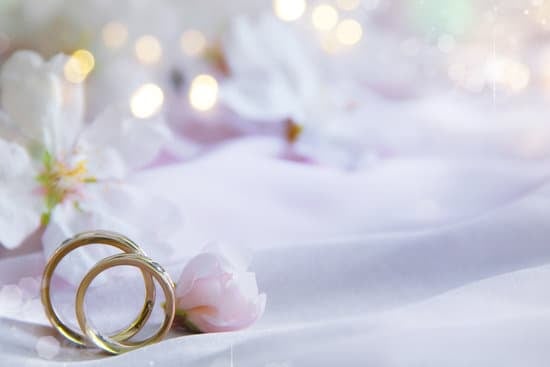Are you planning a wedding and wondering what roles are there in a wedding? From the bride and groom to the parents of the couple, there are many key individuals who play essential roles in making a wedding a success. Understanding these roles and their responsibilities is crucial for ensuring that your special day goes smoothly. In this article, we will explore the importance of various roles in a wedding and why they are essential for creating a memorable event.
A wedding is one of the most significant events in a person’s life, and it involves careful planning, coordination, and support from multiple individuals. Each role in a wedding contributes to different aspects of the event, from emotional support to logistical coordination. By understanding these roles, couples can ensure that every aspect of their special day is well taken care of.
Throughout this article, we will delve into the specific responsibilities of key individuals involved in a wedding, including the bride and groom, maid of honor and best man, bridesmaids and groomsmen, parents of the couple, officiant, wedding planner, and vendors. By understanding each role and its significance, couples can better appreciate the support they receive from their loved ones and professional vendors as they prepare for their big day. Stay tuned as we explore each role in detail.
The Bride and Groom
The roles and responsibilities of the bride and groom are crucial in ensuring a successful and memorable wedding. From the early stages of planning to the execution of the event, the couple plays an essential part in every aspect of their special day. Here are some of the specific roles and responsibilities that the bride and groom take on throughout the wedding process:
1. Planning and Decision-Making: The bride and groom are responsible for making key decisions about their wedding day, including selecting a venue, choosing a theme or color scheme, creating a budget, and finalizing the guest list.
2. Communication with Vendors: It is important for the bride and groom to communicate with various vendors such as florists, caterers, photographers, and musicians. They will need to coordinate meetings, negotiate contracts, and ensure that all details are in place for each aspect of the event.
3. Managing Family Dynamics: The bride and groom may also have to manage family dynamics throughout the planning process. This includes communicating with parents about expectations, involving them in certain aspects of the planning if desired, and navigating potential conflicts that may arise.
As one can see from these specific roles and responsibilities, there is much for the bride and groom to take on throughout the wedding planning process. Their unique input ensures that their personalities shine through on their special day while also creating a memorable experience for everyone involved.
Maid of Honor and Best Man
The roles of the maid of honor and best man are vital in ensuring that the wedding day goes smoothly. The maid of honor often takes on a number of responsibilities, including helping the bride with wedding planning, organizing bridal events such as the bridal shower and bachelorette party, and providing emotional support throughout the entire process.
In addition to this, the maid of honor traditionally holds the bride’s bouquet during the ceremony and is tasked with adjusting her veil and train when necessary.
Similarly, the best man is there to support the groom throughout the entire wedding journey. He is typically responsible for organizing various pre-wedding events such as the bachelor party, assisting with any necessary tasks leading up to the big day, and ensuring that things run smoothly on the wedding day itself. The best man also often holds onto the wedding rings until they are needed during the ceremony.
In addition to their individual roles in supporting the couple, both the maid of honor and best man also play a crucial part in managing the bridal party. They are responsible for communicating important information to bridesmaids and groomsmen, coordinating group activities, and making sure everyone is prepared and present when needed. Overall, these roles are essential in ensuring that all aspects of a wedding – from emotional support to logistical coordination – come together seamlessly on the big day.
Bridesmaids and Groomsmen
Pre-Wedding Events
One of the primary responsibilities of bridesmaids and groomsmen is to assist with pre-wedding events, such as bridal showers, bachelor/bachelorette parties, and rehearsal dinners. Bridesmaids often take the lead in organizing the bridal shower and offering emotional support to the bride, while groomsmen help plan and host a fun bachelor party for the groom. These events provide an opportunity for friends and family to celebrate with the couple before the official wedding day.
Support During Ceremony
During the ceremony itself, bridesmaids and groomsmen play vital roles in ensuring that everything runs smoothly. They may be responsible for guiding guests to their seats, distributing programs or other materials, and assisting with any last-minute details. Additionally, they stand by the couple’s side as they exchange vows, providing support both physically (holding bouquets or rings) and emotionally.
Assistance With Wedding Tasks
In addition to pre-wedding events and ceremony responsibilities, bridesmaids and groomsmen are often called upon to assist with various tasks leading up to the big day. This might include helping with DIY projects, accompanying the couple on vendor appointments, or simply providing moral support during times of stress.
Overall, bridesmaids and groomsmen have a crucial role in supporting the bride and groom throughout their wedding journey. From emotional support to practical assistance, their contributions are invaluable in creating a memorable event for all involved.
Parents of the Couple
The parents of the bride and groom play a significant role in the wedding, not only emotionally but also through their financial contributions and support. Traditionally, the father of the bride pays for most of the wedding expenses, including the ceremony and reception costs.
However, in modern times, many couples opt to share these expenses or cover them entirely themselves. The parents of the couple also contribute to decision-making processes and provide emotional support throughout the planning and coordination of the event.
In addition to financial responsibilities, the parents of the bride and groom often take on various tasks to assist in ensuring that the wedding day runs smoothly. This can involve helping with guest accommodations, transportation arrangements, or even supporting with pre-wedding events such as engagement parties or rehearsal dinners. Their involvement helps alleviate stress for the couple while also ensuring that all aspects of the wedding are well-coordinated.
Emotionally, the parents of the bride and groom provide a pillar of support for their children during what can be a stressful time. Whether it’s calming pre-wedding jitters or offering advice on important decisions, their guidance is invaluable.
Furthermore, they may also serve as a source of wisdom when it comes to family traditions or customs that should be incorporated into the ceremony or reception. Ultimately, their love and encouragement play an essential role in creating a memorable and meaningful wedding day experience for both the couple and their guests.
Officiant
The Officiant’s role in a wedding is one of significant importance, as they are responsible for overseeing the ceremony and ensuring that the marriage is legally binding. The Officiant can be a religious figure, such as a priest or rabbi, or a civil officiant, depending on the type of ceremony the couple chooses to have.
Regardless of their specific title or religious affiliation, the Officiant plays a crucial role in guiding the couple through their vows and overseeing the exchange of rings.
One of the primary duties of the Officiant is to work with the couple to create a personalized and meaningful ceremony that reflects their values, beliefs, and relationship. This may involve offering guidance on traditional customs and practices, as well as incorporating unique elements that are important to the couple. Additionally, the Officiant typically assists in writing and approving the script for the ceremony, ensuring that it aligns with legal requirements and any specific requests from the couple.
In addition to leading the ceremony itself, the Officiant is also responsible for handling all legal aspects of marriage. This includes obtaining and completing the necessary paperwork before and after the wedding, such as marriage licenses and certificates.
The Officiant must ensure that all legal requirements are met during the ceremony to validate the marriage, which may vary depending on local laws and regulations. Overall, the role of an Officiant in a wedding goes beyond simply conducting the ceremony; it involves navigating both emotional and legal responsibilities to ensure that couples have a seamless and unforgettable wedding experience.
| Officiant Responsibilities | Details |
|---|---|
| Create Personalized Ceremony | Work with couples to craft a meaningful wedding script |
| Legal Aspects | Handle all legal paperwork required for marriage |
Wedding Planner
A wedding planner plays a crucial role in ensuring that the big day runs smoothly and according to plan. Their responsibilities cover a wide range of tasks, from coordinating vendors to managing the overall schedule of events.
One of the primary roles of a wedding planner is to work closely with the bride and groom to understand their vision for the wedding and then bring that vision to life. This often involves selecting and booking suitable venues, managing budgets, and organizing all aspects of the event.
In addition to working directly with the couple, a wedding planner also liaises with various vendors involved in the wedding, such as florists, caterers, photographers, and musicians. Coordinating these different suppliers can be a complex task, but it is essential for ensuring that everything comes together seamlessly on the day of the wedding. This may involve negotiating contracts, scheduling appointments, and overseeing deliveries and setups.
Furthermore, a wedding planner is responsible for managing the overall schedule of events on the day of the wedding. This includes creating timelines for when each part of the day should take place, such as when guests arrive, when the ceremony begins, when dinner is served, and when speeches are made. By keeping everything on schedule, a wedding planner helps to ensure that every aspect of the event happens at the right time and in the right order.
| Responsibilities | Details |
|---|---|
| Coordinating Vendors | Liaising with florists, caterers, photographers, etc. |
| Managing Schedule | Creating timelines for each part of the day |
| Couple Coordination | Understanding their vision and bringing it to life |
Vendors
Florist
The florist is responsible for creating the perfect ambiance with beautiful flower arrangements. This includes designing bouquets for the bride and bridesmaids, boutonnieres for the groom and groomsmen, as well as centerpieces for the reception. The florist must also coordinate with the couple to ensure that their vision is brought to life on their special day.
Caterer
The caterer has a significant role in ensuring the guests are well-fed and satisfied. From hors d’oeuvres during cocktail hour to a delectable dinner menu, the caterer must work closely with the couple to create a menu that reflects their taste and style. In addition to meal preparation, caterers may also be responsible for providing bar service, including alcoholic beverages if desired.
Photographer
Capturing every moment of the wedding day is the primary responsibility of the photographer. From getting ready shots to candids throughout the ceremony and reception, it’s essential that couples find a photographer who can document their special day in a style that matches their preferences. The photographer will immortalize memories that will last a lifetime through stunning images, making them an integral part of any wedding celebration.
Conclusion
In conclusion, a wedding is a complex event that requires the coordination of various roles to ensure its success. From the bride and groom to the maid of honor, best man, bridesmaids, groomsmen, parents, officiant, wedding planner, and vendors, each role plays a crucial part in creating a memorable and seamless event.
The bride and groom are at the center of the celebration, with responsibilities ranging from planning the details of the ceremony to ensuring a smooth execution on the big day.
The maid of honor and best man take on important support roles for the couple and manage the bridal party, while bridesmaids and groomsmen assist with pre-wedding events and offer help during the ceremony. The parents of the couple also play significant roles through financial contributions and emotional support. Additionally, the officiant performs essential duties during the wedding ceremony and handles legal aspects of the marriage.
Furthermore, skilled wedding planners coordinate all aspects of the event and manage various vendors such as florists, caterers, photographers, and more. Each role contributes to creating a momentous celebration that reflects the unique personalities of the couple. Ultimately, it’s this collaboration between different individuals fulfilling specific roles that leads to a successful wedding day that will be cherished for years to come.
Frequently Asked Questions
What Are the Roles in a Wedding?
The roles in a wedding can include the bride and groom, officiant, bridesmaids, groomsmen, maid of honor, best man, flower girl, ring bearer, and ushers. Each role plays a specific part in the wedding ceremony and celebration.
What Are the Roles in the Wedding Order?
The wedding order typically includes the procession of the wedding party, with the officiant at the altar. It also involves key moments like the exchange of vows and rings, as well as any special rituals or traditions unique to the couple or their families.
What Positions Do You Need in a Wedding?
In a wedding, you typically need positions like an officiant to perform the ceremony, bridesmaids and groomsmen to support the bride and groom, as well as a maid of honor and best man to fulfill special roles. Other positions like flower girls, ring bearers, and ushers may also be included based on tradition or personal preference.

I have been involved in marriages for over 20 years helping couples and singles understand more about them.





